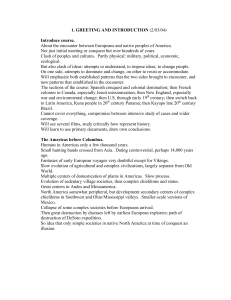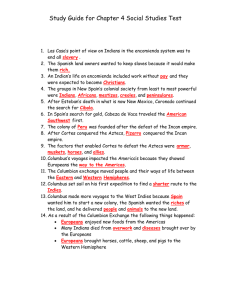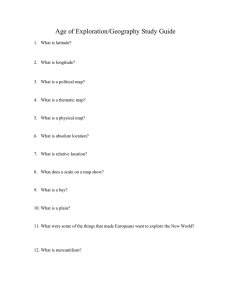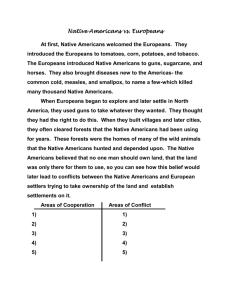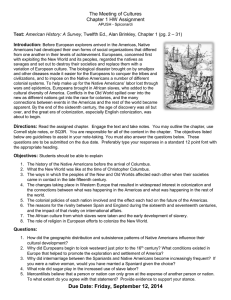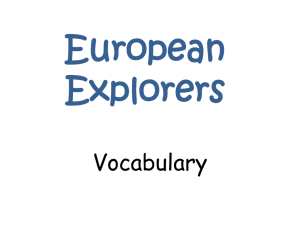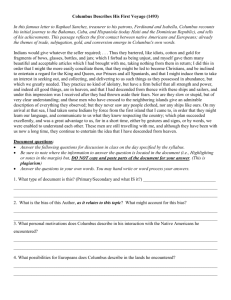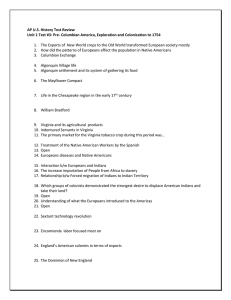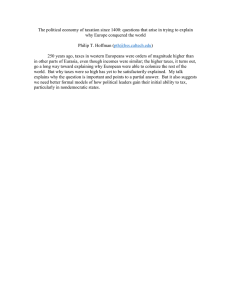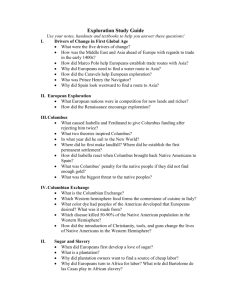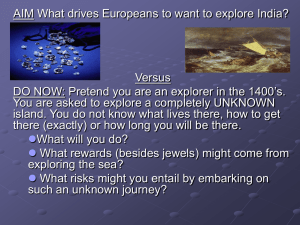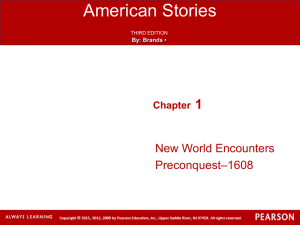America European Conquest The
advertisement
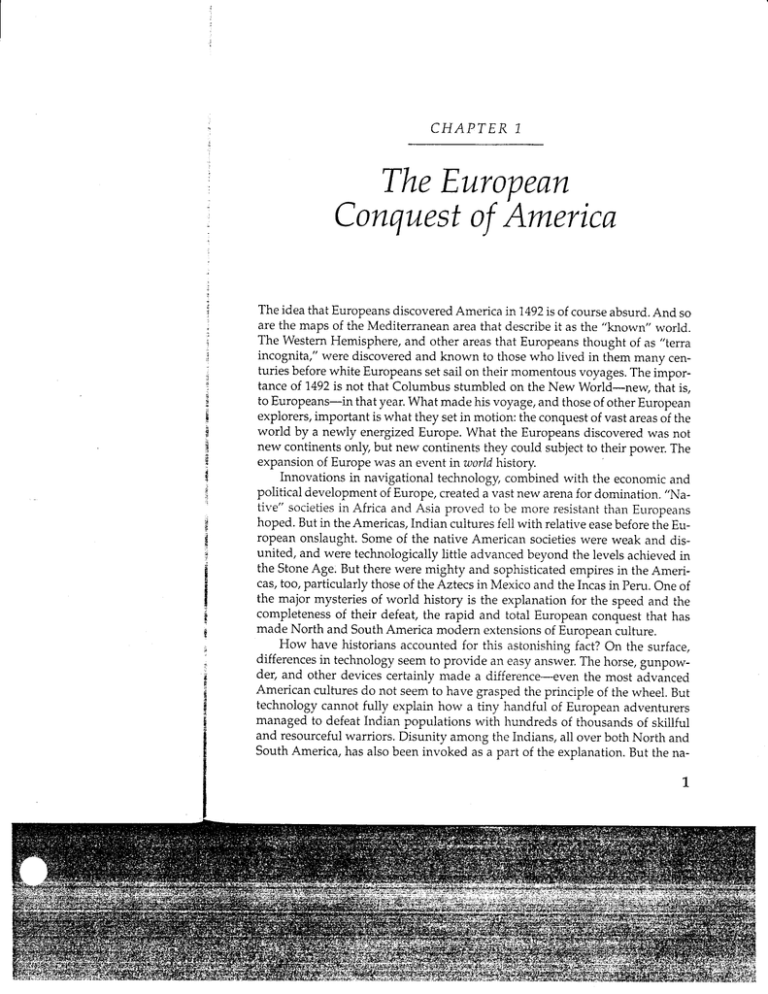
CHAPTER 1 The European Conquest of America The idea that Europeans discovered America in1492is of course absurd. And so are the maps of the Mediterranean area that describe it as tire "known" world. The Western Hemisphere, and other areas that Europeans thought of as ,,terra incognita," were discovered and known to those who lived in them many centuries before white Europeans set sail on their momentous voyages. The importance of 7492 is not that Columbus stumbled on the New World-new tirat is, to Europeans-in that year. What made his voyage, and those of other European explorers, important is what they set in motion: the conquest of vast areas of the world by a newiy energized Europe. What the Europeans discovered was not new continents only, but new continents they could subject to their power. The expansion of Europe was an event in zaorldhistory. Innovations in navigational technology, combined with the economic and political development of Europe, created a vast new arena for domination. ,,Native" societies in Africa and Asia prorred to be more resistant than Europeans hoped. But in the Americas, Indian cultures fell with relative ease before the European onslaught. Some of the native American societies were weak and disunited, and were technologically little advanced beyond the levels achieved in the stone Age. But there were mighty and sophisticated empires in the Americas, too, particularly those of the Aztecs in Mexico and the Incas in Peru. one of the major mysteries of world history is the explanation for the speed and the completeness of their defeat, the rapid and total European conquest that has made North and South America modern extensions of European culture. How have historians accounted for this astonishing fact? on the surface, differences in technology seem to provide an easy answer. The horse, gunpowder, and other devices certainly made a difference-even the most advanced American culfures do not seem to have grasped the principle of the wheel. But technology cannot fully explain how a tiny handful of European adventurers managed to defeat Indian populations with irundreds of thousands of skillful and resourceful warriors. Disunity among the Indians, all over both North and South America, has also been invoked as a part of the explanation. But the na- The European Conquesi of America The Indians'New World tive civilizations were hardly more disunited and contentious than their EuroPean conquerors. More recently, historians have begun to pay attention to a silent factor that few of the participants in the European conquest were fully aware of-and that few used intentionally. For countiess generations, Europe had been ravaged by diseases like tuberculosis and smallpox. In the process, Europeans had developed natural immunities to the worst effects of their illnesses. The isolated Americans, on the other hand, had not been exposed to these diseases and had no immunities. They could be slain by the hundreds of thousands by sicknesses as harmless to whites as the measies. Such diseases literally wiped out entire tribes and their cultures and made it possible for Europeans to simply walk in and take over. The conquest of the Americas was a complex Process, and there are no clearcut answers to our questions about it. What we know for certain is this: very few events in the history of the human race have had more far-reaching consequences, for the conquerors and their victims alike. 'lL The followirtg essat rell, turrts lhe fanti the story lws been i tells it t'rom the pert to cope with the sh this essay, you mai that Europearrc intt How do you think Merrell says enough to surz.._ -.' In August 1608 John S Amoroleck during a r men-a hunting par Amoroleck replied thi under the world, to t simple yet important after 7492native Ame, transplanted Africans The failure to exp many excellent studie mains "a history of th who transformed Am One reason indians g them inio the new wor torical imagination an velopment. From Fre Melville J. Herskovits ters between peoples the complex interplay American environmer might seem Iogical to The natives' segre, tend to think onlv of bounded by the .l t H. N,lcrrell, .,T. Qtrnrtcrly.ser. 3, r.ol. 41, Oct, Frc,m James The Europeqn Conguest of Americo 1. Why does this orticle considered it "obsurd" thot Columbus discovered Americo in 1492? 2,Why wos the voyoge mode by Columbus considered importont? 3. Whot expfonotions do historiqns suggest to exploin the quick ond completedefeal of hundreds of thousonds of skillful Notives ogoinst o tiny hqndful of Europeqn qdventurers? (3 explonotions)
